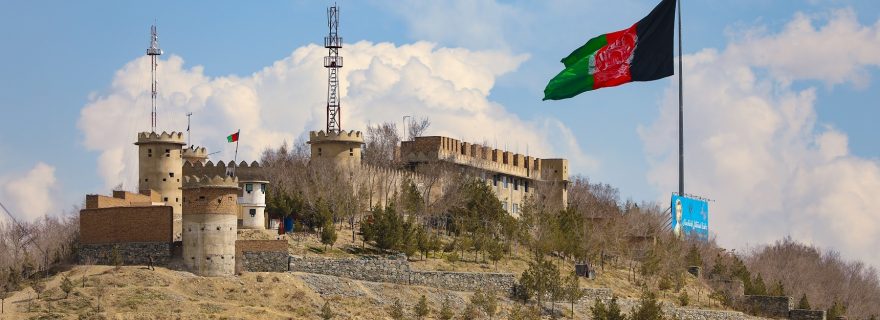Afghanistan’s request for deferral: A procedural dead end
Remaining dormant up until the request, Afghanistan’s invocation of Article 18 of the Rome Statute with regards to the ICC’s investigation only delays the inevitable.
Upon receiving the deferral request, the Office of the Prosecutor (OTP) of the International Criminal Court (ICC) recognised Afghanistan’s inconstant efforts, due inter alia to the pandemic, in communicating with the Court as to the alleged war crimes and crimes against humanity that occurred on its soil currently under investigation. The government of Afghanistan has been unable to specify with concrete evidence the status of its ongoing or concluded investigations. Of the 151 cases listed, 28 have been prosecuted or have resulted in convictions and the remaining are under investigation and/or arrest warrants have been rendered to the Afghan National Police and National Directorate for Security. The request carefully does not mention whether any of the suspected individuals subject of an arrest warrant have effectively been arrested.
Up until the request from Afghanistan, the Court had never had to interpret Article 18 closely. The latter enables a State to halt the Court’s exercise of its jurisdiction over potential cases preemptively, if the State in question has or has had an ongoing investigation on the relevant facts. As such, the Prosecutor examines the Afghan government’s request based on complementarity criteria that differ slightly from when a defendant challenges complementarity in a specific case, where the Court determines a State’s ability and willingness to investigate the individuals most responsible for the alleged crimes. Accordingly, the Prosecutor verifies if the cases presented by the Afghan government are against the alleged perpetrators that the OTP investigations would most likely zero in on and a strict same type of conduct test is applied.
Reaching the complementarity thresholds
The Article 18’s invocation by the Afghan government is its latest attempt at halting ICC proceedings. Indeed, in 2017, the Afghan government unsuccessfully tried to prevent the Prosecutor from filing an application to the Pre-Trial Chamber to authorise an investigation within the State by delivering a list of its own concluded cases. The crimes covered were committed by low-profile members of the Afghan armed forces or other armed groups. While the Afghan government has always stated that providing justice to the victims is a priority, the maintenance of the National Reconciliation, General Amnesty and National Stability Law prevents its effective delivery. The International Crimes Investigation Unit, tasked to investigate war crimes, has scarce resources and results. Finally, a potent protection mechanism for victims and witnesses alike is lacking domestically. Realistically, given the fragile intra-Afghan peace talks overseeing an ephemeral ceasefire (on top of the ongoing pandemic), it would prove to be a challenge for the Afghan government to reach the requirements of willingness and ability to prosecute the suspected individuals currently occupying high-level official positions.
It is challenging to avoid ICC involvement as soon as the Prosecutor decides to open an investigation. None of the 151 cases submitted by the Afghan government are related to the alleged crimes attributed to the US forces and the CIA by the Prosecutor in her application for investigation. As per Article 98 of the Rome Statute, several Status of Forces Agreements have been concluded by Afghanistan with notably the US giving them the exclusive right to prosecute their own nationals. Following the confirmation of the investigation, the US government pledged to ‘take all necessary measures’ against a ‘renegade, unlawful, so-called court’. They further argued that the ICC lacks jurisdiction over US nationals as the US is not a State Party to the Rome Statute. In rebuttal, the Prosecutor argued that the ICC’s territorial jurisdiction is established as the alleged war crimes were committed on Afghan soil. Since the US rejects any ICC jurisdiction over its citizens, it has not submitted a deferral request to the ICC. But since the Afghan government’s request does not extend to the alleged crimes committed by US armed forces and the CIA, the Prosecutor would nonetheless be able to focus the investigation on that aspect.
An idle stopgap
It is important to point out that complementarity encompasses a balance between supranational jurisdiction and State sovereignty. Legitimate domestic proceedings are essential in order to make justice graspable for both the perpetrators and the victims as well as, to a larger extent, the society within which the crimes were committed. Contextually, it would put all parties in the intra-Afghan peace negotiations process on the same level. While the ICC has a crucial role to play, it is up to domestic systems to investigate, prosecute, and, to a larger extent, prevent the commission of international crimes. As per the complementarity thresholds, the Afghan government is faced with a strenuous task in order to prove credible war crimes investigations against suspected individuals that might render the need for an ICC investigation obsolete. If the information provided does convince the Prosecutor, the investigation into the relevant cases will be deferred. However, the most likely scenario is that the entire investigation will be able to proceed. As a State’s deferral request is limited to domestic cases which could be identical to the Prosecutor’s, the latter could still investigate the cases that the Afghan government’s request does not encompass (such as the alleged crimes committed by US nationals). Thus, even if the request is successful, which is very doubtful, time has run out for Afghanistan in its attempt to halt the ICC’s involvement.



0 Comments
Add a comment